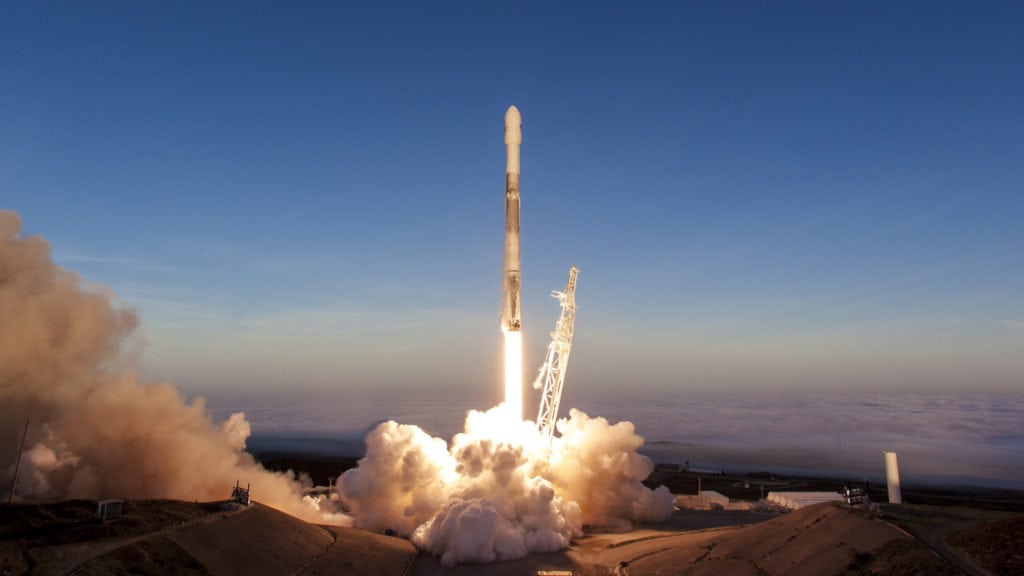
SpaceX deployed 10 more Iridium satellites, all of which successfully joined the Iridium network. File photo
After a one-day delay, SpaceX successfully launched the fifth set of 10 Iridium Next satellites Monday from the Vandenberg Air Force Base in California. Iridium confirmed shortly after launch that its network operations center made contact with all 10 satellites, which are now preparing to begin testing.
Once fully deployed, the Iridium Next constellation will provide global coverage for the company’s Iridium Certus L-band broadband service, as well as Aireon’s global aircraft surveillance and tracking. Just three launches remain in the campaign, which is expected to conclude before the end of 2018. SpaceX will deliver a total of 75 new satellites to orbit, including nine in-orbit spares.
When the Aireon payloads from this launch come online, the system will have nearly global coverage with 15-minute or better update intervals, Aireon said. This signifies optimal timing for airlines to begin testing the capabilities of space-based ADS-B, which will help airlines meet the International Civil Aviation Organization (ICAO) and European Aviation Safety Agency (EASA) regulations that require aircraft be equipped with an aircraft tracking system for those flights not tracked by air traffic control by the end of 2018.
FlightAware and Aireon have worked together to create a new product called GlobalBeacon. The product combines FlightAware’s data-processing platform and web interface with Aireon’s space-based ADS-B data to create a solution compliant with ICAO’s Global Aeronautical Distress Safety System (GADSS) standards.
For this launch, SpaceX reused a booster that was previously flown for another Iridium mission last October, making this the second Iridium Next launch to use a flight-proven Falcon 9 rocket.
Just before liftoff, Iridium also said it crested 1 million active subscribers on its satellite network.
This was originally published on sister publication Via Satellite.